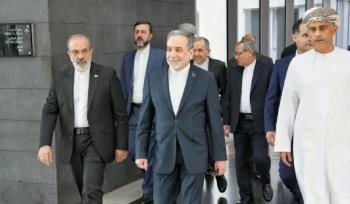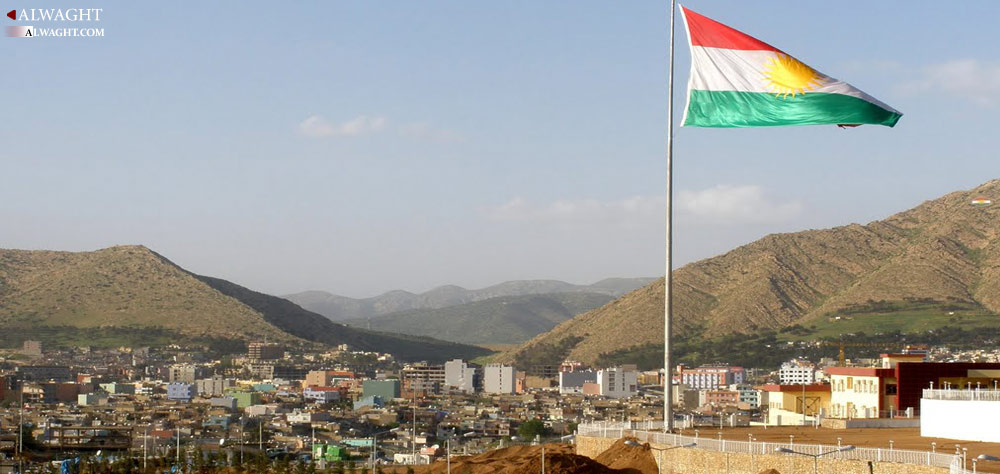Alwaght- In the initial years of the 1990s and following the Persian Gulf War, the Kurds of Iraq built up struggles to obtain independence from the central government. After the UN Security Council Resolution 688 and establishing the no-fly zone over Iraq's north, the autonomous region of Iraqi Kurdistan came to existence. From that time on, the Kurdish independence went under focus of academics, the regional countries, and very specifically the Kurdish leaders.
Since removal of Saddam Hussein of Iraq in 2003 by the US invasion, the Iraqi Kurdish leaders went to great lengths to attain further control over their own affairs in northern Iraq. The differences between the central Iraqi government in Baghdad and the Erbil-based Kurdish government, majorly over distribution of finances and controls over disputed oil-rich areas, caused many of the Kurdistan authorities to take steps that only worsened the rifts between them and Baghdad leaders. Since a long time, the Kurdish officials protested that Baghdad officials have not given a fair share of sources, majorly from the oil incomes, to the regional Kurdish government. Some top Kurdistan leaders asserted overtly that full independence from Iraq was their ultimate end.
At the time being, the United States' West Asian policy is concentrated on ISIS terrorist group and the Syrian humanitarian crisis, and so does not pay much attention to Iraqi Kurdistan region, which some day could rise as an independent Kurdistan state and effectively influence the regional stability and even the US national security. Since establishment of the US-led no-fly zone over northern Iraq in 1991 which cut Baghdad’s sway over the north, the regional government of Kurdistan has acted as a kind of potentially independent state in its territory. The Iraqi constitution in post-Saddam time has entrenched the political and economic autonomy of Kurdistan region.
But the central government of Iraq in the current conditions is severely against independence of the Kurdish region. According to the Iraqi government's view, the Kurdish separation presents a big and direct challenge to Baghdad’s clout. This conflict of interests has been an undercover issue between Baghdad and Erbil, and stands as the origin of some of present political rifts between the two sides, including the dispute over territories, the federal budget, and Kurdistan's oil production facilities development.
At the present time, the Kurdish region governs the three provinces of Dohuk, Erbil, and Suleimanya, as well as a vast part of what is called “disputed territories”. The disputed regions are in fact a mix of territories that both Baghdad and Erbil claim ownership of. In 2014, the Kurds seized control of a major part of the contested territories, including the oil-rich province of Kirkuk and pressed ahead with a bid for independence.
In the current situation, any unilateral declaration of Kurdistan’s independence will draw a possible Baghdad's strong response as the central government deems such a declaration as violation of the Arab country's sovereignty and a serious challenge to Baghdad’s capability of protecting the country’s unity. Additionally, even if the Iraqi government collapses, it will object to independence of the Kurds. If a gradual separation of Erbil and Baghdad leads to an agreed-upon Kurdish split from Iraq, Baghdad will try to reduce consequences of losing Kurdistan to a minimum level.
But the Kurds, particularly after emergence of ISIS terrorist group in the country and its capturing of major regions, began to face impediments ahead of their aim of seeking independence. The ISIS crisis pressed iraqi Kurdistan President Masoud Barzani to reduce his earlier tightly-held demands for unilateral referendum to negotiations with the central government’s leaders over this bid. This withdrawal of referendum bid by the Kurdish leader could indicate an effort by the regional government’s authorities to win Baghdad’s approval of independence for Kurdistan as Erbil officials are aware of the unpredictable reactions of Baghdad’s government and foreign actors to unilateral announcement of independence. In fact, domestic differences among the Kurdish parties and groups as well as a decline to accept rise of an independent state of Kurdistan by the regional and international sides are the major drives behind a Kurdish retreat from holding a separation referendum. At the present time, other than the Israeli regime no foreign power express openly its support for the Kurdish independence. Turkey, sharing borders with northern Iraq, by applying a volatile policy, has proven that it cannot stand as a trustable supporter for an independent Kurdish state.
Even inside Iraq, the Kurds hold no reliable advocates. Aside from the Shiite sides and groups that preferred to stay silent about the future of the independence of Kurdistan, a majority of the Sunni parties, groups, and figures do not show approval for the Kurd’s independence because a considerable number of the Sunnis are residents of Kirkuk and so they cannot ignore the city’s rich oil reserves which provide a major source of income for a potential formation and administration of an autonomous Sunni region. To put it differently, inclusion of Kirkuk in the Kurdistan region can mar the dreams of the pro-autonomy Sunni Iraqis. So in addition to being a sticking point between the central government and the Kurdish regional government, Kirkuk future, once the struggle heats up, will be a dispute case between the Kurds and the Sunnis.
In general, Kurdistan’s leaders, with a consideration of a set of domestic and foreign hurdles, have decided to backtrack on their formerly-asserted demand for holding referendum to make the final decision on independence. Actually, aside from denial of recognition by the foreign governments, internal strife and the deteriorating social conditions in Kurdistan set up rigid stumbling blocks ahead of way to independence. Moreover, a Sunni groups' struggle to form an all-Sunni region, with Kirkuk as its capital, can additionally challenge the Kurdish independence bid as the Sunni leaders set heart on the Kirkuk Sunni population as well as its oil resources. Moreover, insistence on holding Kirkuk as part of their territory will put the Kurds not only in front of Iraq's central government but also the advocates of Sunni autonomy.



























